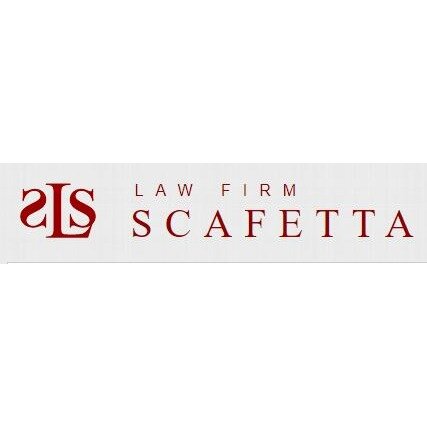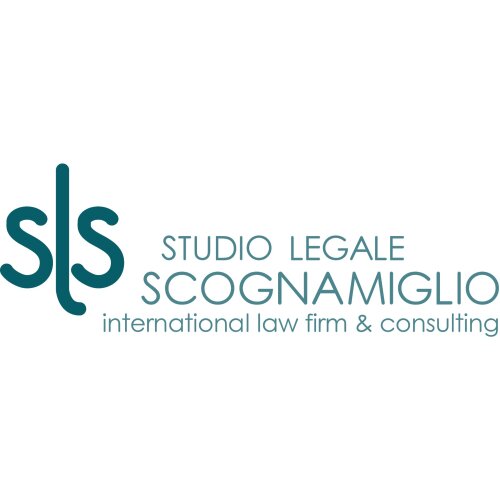Best Funds & Asset Management Lawyers in Naples
Share your needs with us, get contacted by law firms.
Free. Takes 2 min.
List of the best lawyers in Naples, Italy
About Funds & Asset Management Law in Naples, Italy
Funds and asset management is a rapidly developing sector in Naples, Italy, deeply influenced by both European Union law and Italian national regulations. Naples serves as a vibrant financial and economic hub in the southern region of Italy, with considerable activity in investment funds, private equity, real estate funds, and portfolio management. The law in this field governs how assets are managed on behalf of individuals, companies, and institutional investors to ensure transparency, protect capital, and encourage sound investment strategies. Legal professionals in Naples guide both Italian and international clients through the intricate rules and procedures relevant to the regulation, formation, and administration of funds, as well as the management of diverse asset classes.
Why You May Need a Lawyer
Engaging a qualified lawyer is crucial in several scenarios involving funds and asset management in Naples. Legal assistance may be required when establishing a new investment fund, navigating regulatory compliance, drafting complex contracts with asset managers, or dealing with cross-border investments. Lawyers are indispensable if you are facing regulatory investigations, disputes with investors, or tax optimization challenges. They also play a key role in conducting due diligence for mergers and acquisitions involving funds, managing succession planning related to managed assets, and advising on risk management and restructuring of portfolios. Regardless of your position - whether investor, fund manager, company, or individual - a knowledgeable legal advisor can safeguard your interests and ensure compliance with local and EU laws.
Local Laws Overview
Funds and asset management in Naples, Italy, is governed by a combination of Italian laws and regulations issued by authorities such as the Bank of Italy (Banca d'Italia) and the Italian Companies and Exchange Commission (CONSOB). Key legal frameworks include Legislative Decree No. 58 of 1998, also known as the Consolidated Law on Finance (Testo Unico della Finanza or TUF), which regulates financial markets, collective investment schemes, and intermediaries. EU directives such as UCITS and AIFMD have been transposed into Italian law, setting requirements for transparency, organization, and capital adequacy of fund managers. Local rules dictate the registration process, operational requirements, investor protections, and periodic disclosure obligations. These regulations aim to ensure market integrity, investor confidence, and alignment with both national and European standards.
Frequently Asked Questions
What types of investment funds are available in Italy?
In Italy, you can invest in various types of funds, including open-ended funds, closed-ended funds, real estate funds, hedge funds, and private equity funds. Each has different structures and regulatory requirements.
Who regulates funds and asset management in Naples?
The main regulatory bodies are CONSOB, which oversees securities markets and investor protection, and the Bank of Italy, which supervises financial intermediaries, including asset management companies.
Is it possible for foreign investors to participate in Italian funds?
Yes, foreign investors are allowed to participate in Italian funds. However, there are specific reporting and compliance requirements, including anti-money laundering procedures.
What are the primary legal documents needed to establish a fund?
The main documents include the fund rules or prospectus, incorporation deeds, management agreements, and investor information documents. Legal counsel can help draft and review these documents to ensure compliance.
What due diligence is recommended before investing in a Naples-based fund?
Investors should review the track record of the fund manager, confirm the regulatory status of the fund, analyze fees and charges, and understand the risk profile. Legal due diligence ensures the legitimacy and compliance of the investment.
Are there tax considerations for fund investors in Naples?
Yes, taxation varies depending on the investor’s residence, fund type, and income generated. Italian law provides specific tax rates and may allow for exemptions or reduced rates based on bilateral treaties.
How are disputes between investors and asset managers resolved?
Disputes can be resolved through negotiation, mediation, or formal legal proceedings before Italian courts. Sometimes arbitration may also be specified in fund documentation.
What legal risks are commonly associated with funds and asset management?
Legal risks include regulatory non-compliance, mismanagement of assets, fraud, conflicts of interest, and breaches of fiduciary duty. Consulting a lawyer can help mitigate these risks.
Can I change the asset manager of my fund in Italy?
Yes, it is possible, but procedures must be followed according to Italian law and fund documentation terms. Regulatory notification and approval may be required.
How does the European Union impact funds and asset management in Naples?
EU directives, such as UCITS and AIFMD, set significant regulatory standards. They affect how funds are structured, managed, and marketed, integrating Italian funds into a wider European investment landscape.
Additional Resources
If you seek more information on funds and asset management law in Naples, Italy, consider reaching out to:
- The Italian Companies and Exchange Commission (CONSOB) for regulatory updates and licensing information
- Bank of Italy (Banca d'Italia) for guidelines on financial intermediaries and operational rules
- Assogestioni, the Italian Association of Asset Managers, for industry standards and studies
- Local chambers of commerce in Naples for business support services
- Professional law firms specializing in asset management, many of which offer bilingual services for international clients
Next Steps
If you need legal advice regarding funds or asset management in Naples, start by defining your specific legal needs and gathering relevant documentation, such as investment agreements, fund prospectuses, and correspondence with managers. Seek a consultation with a specialized lawyer who understands both local and EU regulatory frameworks. Prepare your questions in advance to make the most of your meeting. A professional legal advisor can help you navigate compliance, draft documents, resolve disputes, and structure your investments in accordance with Italian and European law. By acting proactively, you can secure your interests and make informed decisions in a complex and regulated environment.
Lawzana helps you find the best lawyers and law firms in Naples through a curated and pre-screened list of qualified legal professionals. Our platform offers rankings and detailed profiles of attorneys and law firms, allowing you to compare based on practice areas, including Funds & Asset Management, experience, and client feedback.
Each profile includes a description of the firm's areas of practice, client reviews, team members and partners, year of establishment, spoken languages, office locations, contact information, social media presence, and any published articles or resources. Most firms on our platform speak English and are experienced in both local and international legal matters.
Get a quote from top-rated law firms in Naples, Italy — quickly, securely, and without unnecessary hassle.
Disclaimer:
The information provided on this page is for general informational purposes only and does not constitute legal advice. While we strive to ensure the accuracy and relevance of the content, legal information may change over time, and interpretations of the law can vary. You should always consult with a qualified legal professional for advice specific to your situation.
We disclaim all liability for actions taken or not taken based on the content of this page. If you believe any information is incorrect or outdated, please contact us, and we will review and update it where appropriate.










